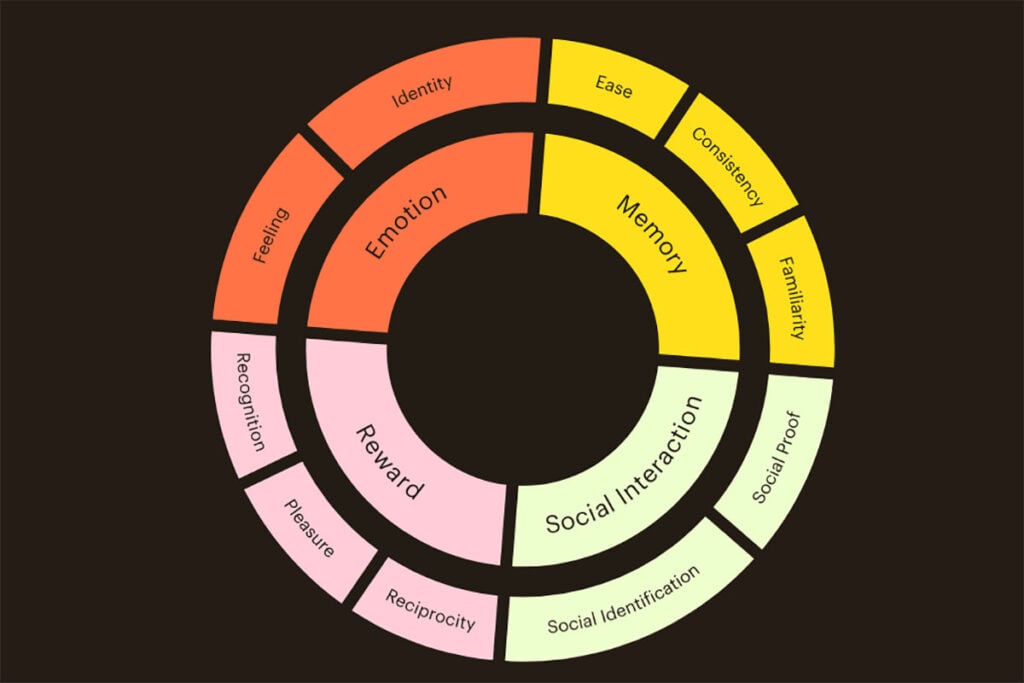Intuit I have released a new report, The Science of Loyalty, focused on the drivers behind consumer behaviour and tangible insights that marketers can take to build loyalty and cultivate meaningful relationships between their brand and its customer base. Brand loyalty is often depicted as devotion – a narrative of customer affection and fidelity. However, the findings revealed a deeper truth. Sourced from a survey of 4,000 consumers across the US, Canada, Australia, and the UK—including 1,000 consumers in the UK—the results revealed that re-purchasing behaviour is not merely a manifestation of consumer adoration and steadfast commitment, but the result of subconscious decision-making.
The research unearthed that well over a quarter (28%) of UK repeat brand purchases occur because they’re part of a routine – a testament to the power of habit. Furthermore, a fifth of re-purchases (20%) occur simply because a brand or product was readily available and 3% due to the inconvenience of switching. This data underpins the importance of convenience and ease when building or maintaining repeat purchases.
But personal preference does also matter; 42% of repeat purchases happen because a customer actively prefers that brand to the others available. While 6% are perhaps dubbed real ‘fans’ willing to go out of their way to seek out that brand’s product. Additionally, seven in ten UK consumers (70%) emphasise that it’s important to them to buy from the right brand, reflecting the desire for more conscious decision-making. However, in the face of an abundance of choices, where 58% of UK consumers feel overwhelmed by the sheer number of brands available, loyalty is being driven by function as much as love.
So what is driving brand loyalty – if it’s not all about love?
The number one non-negotiable for British buyers is trust. Four in five (80%) of those surveyed said they will only buy from a brand if they know it’s trustworthy. When quizzed more deeply about the qualities they look for, UK consumers said they will more likely re-purchase from a company if it: consistently matches the standards they expect (41%), is a brand they know well (37%), is quick and easy to purchase (34%) and makes them feel good (20%). Perhaps surprisingly, these all come above the need for special deals and discounts (17%).
Shoppers were more likely to select a brand that aligns with their personal beliefs, with 65% of saying they shared values with their preferred brand. In addition, 47% of UK repeat purchasers said that recommendations from friends or family help them decide what to buy. By genuinely aligning with customer values and interests, brands can cultivate a deep emotional attachment, even if the reasons for that purchase are not emotive ones.
When it comes to the shopping categories, the ones with the most brand loyalty are Health & Pharma, followed by Beauty and Food & Drink – where 76%, 74% and 65% respectively tend to stick with the same brands. This may be down to consumers making more regular replenishment purchases in these sectors over others, meaning brand familiarity and reliability are particularly important aspects UK consumers consider when buying these types of products. The least brand loyalty was revealed to be in the industries of Jewellery & Accessories (66%), Books & Literature (65%) and Home Goods & Furniture (60%) where consumers tend to switch brands in these categories. These industries are more trend-led and these products are purchased less frequently, meaning brands need to fight hard to roll with the times and carve deep relationships to ensure long-term repeat sales.
And equally, what makes UK consumers switch
If a brand can’t offer quality customer service across channels, 30% would consider switching brands. The most popular method of contact in the UK is email, with over three in five (63%) shoppers looking to keep in touch with brands this way. This is followed by social media (15%) and mobile app notifications (also 15%).
Additionally, 71% of Brits say quality is more important than price. In fact, half would consider switching brands due to quality issues. Other switching drivers include substantial price increases (e.g. higher than 10%) (46%), unethical manufacturing (20%) and unsustainable practices (13%). Brands must also stay hot on pricing, findings show nearly three-quarters (73%) are savvy shoppers, comparing prices across brands to find the best deal.
Loyalty is more important than ever. It’s important marketers truly understand what is driving consumers to return and repeat a purchase. As our UK research shows, it’s too simplistic to assume love and devotion are the only aspects that drive brand loyalty; there are a number of other powerful factors at play, such as ‘word of mouth’ and trust. Therefore brands and marketers need to be equipped with the right tools to measure what really drives their customer habits, so this can inform their marketing strategies.
– Michelle Taite, Chief Marketing Officer, Intuit Mailchimp









